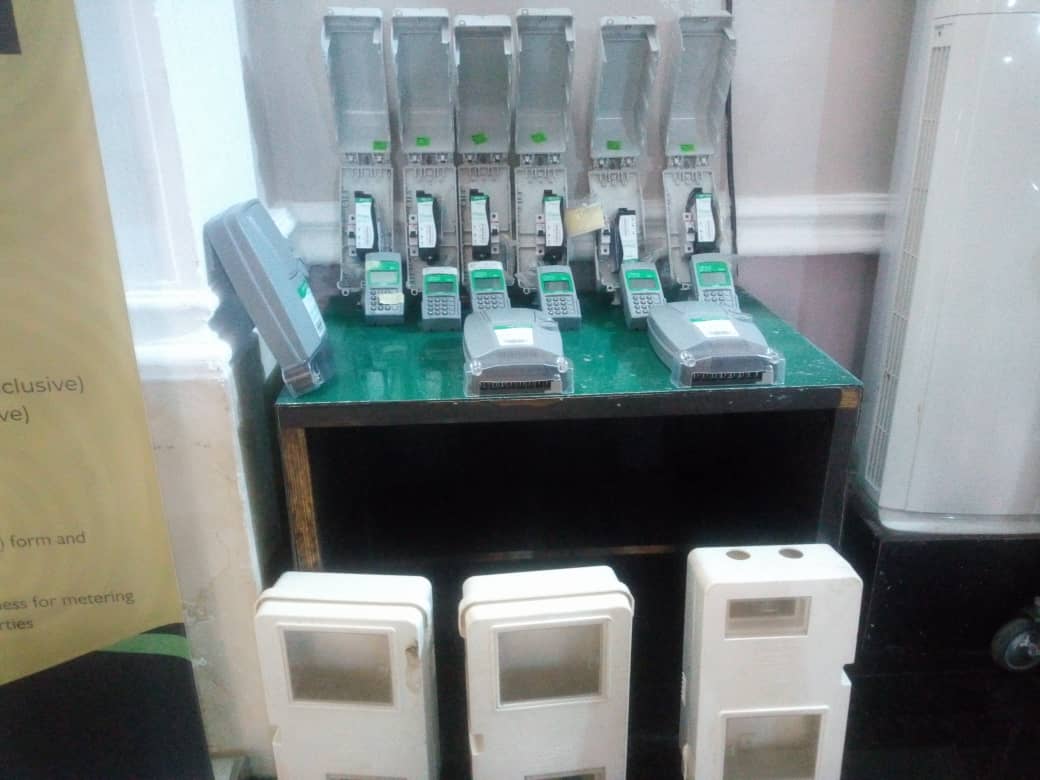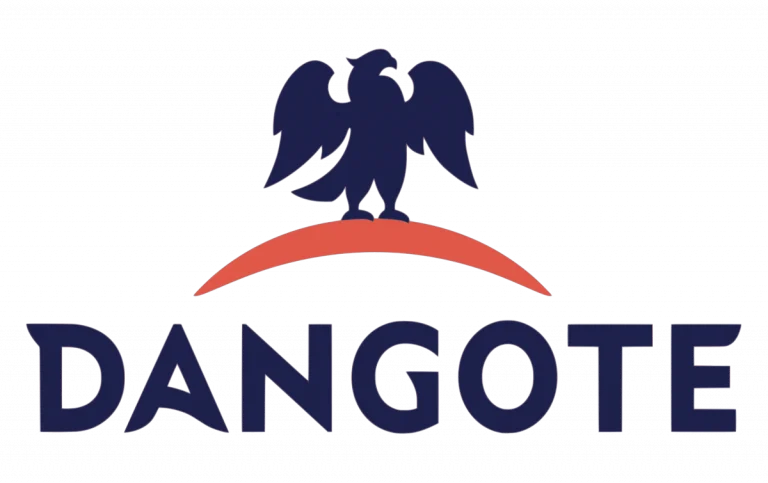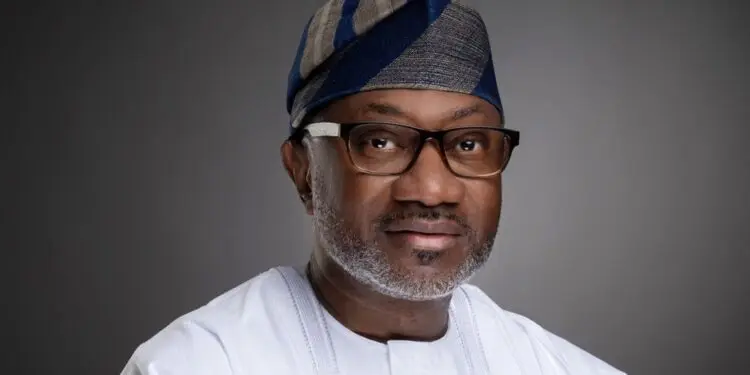Business
BEDC Continues House Metering Across Four Coverage States

In line with Nigerian Electricity Regulatory Commission (NERC)’s directive, Benin Eletricity Distribution Company (BEDC) PLC, Saturday, December 7th, continued it metering of houses at Aiguobasimwin Crescent and its environs, GRA, Benin City and other three coverage states of the company
The event which kick started across the four BEDC coverage states two weeks ago, is aimed at putting an end to estimated bill.

BEDC members of staff attending to customers on metering in Benin City on Saturday
Speaking to Info Daily on behalf of the Head, Corporate Affairs Unit of the BEDC, Mrs. Gloria Mbagwu, said after the metering of houses at the area, any house whose owner fails or refuses to come for enumeration and metering in the area would be disconnected.
“Before we came here, we made an announcement via Radio and Television stations,, including distribution of fliers to create awareness about this programme, so, we are here for business. I want to assure you that any house that fails to come for enumeration and there after metering will be disconnected. We are not coming back here. So, we will not hesitate to disconnect any building that refuses to comply”, she added.

Asaba: BEDC members of staff attending to customers who came for metering in Asaba, Delta State.
Mbagwu, however, noted that a desk has been created at the GRA customer care office to cater for complaints arising from the metering.
Responding to question on how long it takes to be metered, Mbagwu noted that it only takes 48 hours for a customer to be given a meter after passing through all the required processes.
Giving further enlightenment on simplicity of the process, she said “all what a customer needs to do is to come for registration and enumeration after which what is regarded clean up (Network clean up) will follow.

Akure: Metering in Akure
She added that clean-up is followed by registration and filling of MAP application form, there after debt reconcilation/rescheduling. She noted that the debt reconcilation stage was necessary so as to settle all discrepancies arising from underestimated or overestimated bill.
She explained that after a customer must have gone through the previous processes, members of staff of the BEDC would go to such customer’s premises for inspection and in readiness for metering.
According to her, after payment, the proper metering would take place.

Ado Ekiti: Members of BEDC staff attending to customers in Ado Ekiti.
Speaking to Info Daily shortly after being registered, a customer who wants his name not mentioned expressed satisfaction in the whole process.
He said though there was something BEDC has been doing to him in the past, has he came for the metering, personnels have been sent to his house and his complaint has been attended to without delay.
“I don’t want to be quoted in the media but I want to say so far so good, what I saw over there has been satisfactory to me. The people I met in the process are very polite and willing to listen to any of your complaint and attend to such.
“There has been something that I have been expressing displeasure over in my house regarding electricity, but as I came here and lodged the complaint, they have sent their electricians to my house and resolved it, so I am absolutely satisfied”, he added
Business
NNPCL Announces Restoration Of Escravos-Lagos Pipeline

The Nigerian National Petroleum Company Limited (NNPCL) has announced the complete restoration of the Escravos-Lagos Pipeline System (ELPS) in Warri, Delta State, following the recent explosion on the asset.
The chief corporate communications officer (CCCO) of the nation’s oil company, Andy Odeh, in a statement, said that the pipeline is fully operational, reiterating the company’s resilience and commitment to energy security.
“NNPC Limited is pleased to announce the successful restoration of the Escravos-Lagos Pipeline System (ELPS) in Warri, Delta State.
READ ALSO:Fuel Price Cut: NNPCL GCEO Ojulari Reveals Biggest Beneficiaries
“Following the unexpected explosion on December 10, 2025, we immediately activated our emergency response, deployed coordinated containment measures, and worked tirelessly with multidisciplinary teams to ensure the damaged section was repaired, pressure-tested, and safely recommissioned.
“Today, the pipeline is fully operational, reaffirming our resilience and commitment to energy security. This achievement was made possible through the unwavering support of our host communities, the guidance of regulators, the vigilance of security agencies, and the dedication of our partners and staff.
“Together, we turned a challenging moment into a success story, restoring operations in record time while upholding the highest standards of safety and environmental stewardship.
“As we move forward, NNPC Limited remains steadfast in its pledge to protect our environment, safeguard our communities, and maintain the integrity and reliability of our assets. Thank you for your trust as we continue to power progress for Nigeria and beyond,” the statement read.
Business
Dangote Unveils 10-day Credit Facility For Petrol Station Owners

The Dangote Group has announced a 10-day credit facility backed by a bank guarantee for petrol station owners and dealers, alongside free direct delivery and other incentives, as part of a new supply arrangement.
The company disclosed this in a statement posted on its official X handle on Tuesday, inviting petrol station operators across the country to register to benefit from the offer.
According to the statement, participating dealers will enjoy “a 10-day credit facility backed by a bank guarantee,” with a minimum order requirement of 5,000 litres.
“Our free direct delivery service will commence soon,” the group said, adding that the offer is open to “all petrol station owners and dealers.”
READ ALSO:Dangote Sugar Announces South New CEO
The Dangote Group further called on operators to register their stations to access the supply arrangement.
“Register your petrol stations today to benefit from our competitive gantry price,” the statement read.
The company also disclosed that petrol supplied under the arrangement will be sold at a gantry price of ₦699 per litre.
For enquiries, the group provided the following contact numbers: 0802-347-0470, 0809-324-7070, 0809-324-7071 and 0203.
READ ALSO:Dangote Refinery Dispute: PENGASSAN Suspends Strike After FG Intervention
The announcement follows a recent petrol price adjustment by the Dangote Petroleum Refinery.
The PUNCH earlier reported that the refinery reduced its ex-depot petrol price from ₦828 to ₦699 per litre, representing a ₦129 cut or a 15.58 per cent reduction.
An official of the refinery, who spoke to PUNCH Online on condition of anonymity, confirmed the adjustment, saying, “The refinery has reduced petrol gantry price to ₦699 per litre.”
The new price reportedly took effect on December 11, 2025, marking the 20th petrol price adjustment announced by the refinery this year.
Business
JUST IN: Otedola Sells Shares In Geregu Power For N1trn

Billionaire businessman, Femi Otedola, has sold his majority stake in Geregu Power Plc for N1.088 trillion in a deal financed by a consortium of banks led by Zenith Bank Plc.
The Nigerian Exchange, NGX, made this announcement on Monday.
Otedola’s Amperion Power Distribution Company Ltd reportedly held nearly 80 percent of the power generating company.
READ ALSO:N200b Agric Credit Dispute: Appeal Court Slams NAIC, Upholds First Bank Victory
With this new development, Otedola, Chairman of First Holdco Ltd, parent company of First Bank of Nigeria Plc, will reportedly now concentrate on expanding his interest in the Nigerian banking sector, although he still retains some shares in Geregu.
Otedola is said to currently own 17.01 percent of First Bank — its single largest shareholder since the bank was established in 1894.

 Headline8 hours ago
Headline8 hours agoPROPHECY: Primate Ayodele Reveals Trump’s Plot Against Tinubu

 News7 hours ago
News7 hours agoWhat I Saw After A Lady Undressed Herself — Pastor Adeboye

 Metro9 hours ago
Metro9 hours agoJoint Task Force Kills 23 Bandits Fleeing Kano After Attacks

 Politics9 hours ago
Politics9 hours agoWhy Kano Governor Postponed Formal Defection To APC

 Metro7 hours ago
Metro7 hours agoArmed Robbers Shot PoS Operator To Death In Edo

 Metro7 hours ago
Metro7 hours agoGunmen Demand N200m Ransom For Kidnapped Brothers In Edo

 Politics8 hours ago
Politics8 hours ago2027: Rivers APC Pledges To Follow Wike’s Instructions

 News8 hours ago
News8 hours agoReps Release Four Tax Acts For Public Records

 News9 hours ago
News9 hours agoNiMet Forecasts Three-day Dust Haze, Sunshine

 News8 hours ago
News8 hours agoMissing N128bn: SERAP Demands Probe Into Power Ministry, NBET Expenditures




















